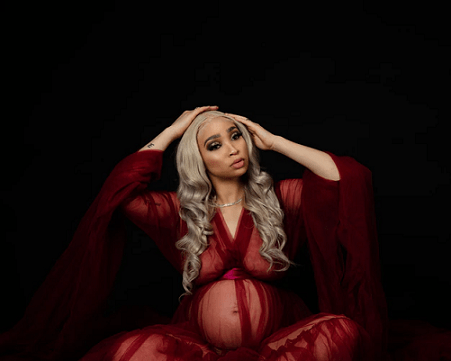They say hair becomes thicker and more lustrous during pregnancy. This is true for some women whereas other future moms experience hair thinning and hair falling out during pregnancy or the first months following birth. This condition may be caused by various reasons like the stress of pregnancy, shifting hormones, or more serious medical issues.
So, let's learn more about hair loss in pregnancy and how to both prevent and treat it.
What Can Cause Hair Loss In Pregnancy?
Hormonal Changes
Some future moms do experience hair loss due to hormonal shifts during pregnancy. These transitions are no joke - they greatly stress the body and may lead to Telogen Effluvium (stressed-induced hair loss). Telogen Effluvium puts about 30% of your hair into the telogen or resting phase. It can take your daily shedding from 100 hairs to 300.
However, even at that rate, it'll take about 2-4 months to notice your hair thinning. Besides, this condition neither lasts longer than 6 months nor results in permanent hair loss, Telogen Effluvium usually resolves itself within a few months.
Health Problems
Growing a baby is not an easy task for your body! In fact, pregnancy increases the risk of some health problems, e.g. vitamin deficiencies, high blood pressure, gestational diabetes, hyperemesis gravidarum, etc. Depending on their severity, these problems can cause Telogen Effluvium.
Thyroid Disorders
Thyroid issues can be difficult to diagnose during pregnancy due to hormonal shifts. However, excessive shedding is one of the symptoms of this condition. Other symptoms may include fatigue, constipation, and muscle cramps. If you suspect thyroid problems, you need to talk to your health care provider about doing necessary blood tests to rule out possible issues.
Iron Deficiency Anemia
You can lose hair in early pregnancy and after giving birth if you have iron deficiency anemia. Anemia occurs when you have an insufficient amount of red blood cells which get oxygen to different tissues in the body. This condition causes hair falling out along with other symptoms like headaches, exertional shortness of breath, irregular heartbeat, and fatigue.
Pregnancy increases the risk of low iron levels, especially if you carry multiples, have severe morning sickness, or expect soon after giving birth.
Your hair won't return to its normal thickness until you address your vitamin levels. So, if you think you may have anemia, consult your doctor and do a blood test that will determine whether you need iron supplements.
Treatment for Hair Loss in Pregnancy
If your hair is shedding due to pregnancy, no special treatment is required and it'll bounce back over time. In case your hair loss is caused by health issues, work with your doctor to find safe medications or vitamin supplements that will help to return your levels to normal. Do not take or use any solutions until your health care provider gives you the go-ahead since most meds are dangerous for your future baby!
While you can't take pills, there are several effective home remedies that can help your hair to regrow:
● Scalp massage - it encourages circulation, hence hair growth. Use olive, almond, jojoba, or peppermint oil for nourishing and moisturizing your scalp and stimulating hair growth.
● Fenugreek hair mask - fenugreek seeds have been known as skin and hair booster for ages. Soak seeds overnight, then mash them, massage your scalp with this paste. Itshouldimproveyourhair'sthicknessandluster.
● Eat nourishing foods - if you experience hair loss during or after pregnancy, vitamins are a must for you! Eat a healthy, balanced diet. Nosh on salmon, tuna, walnuts, chia seeds, fish, meat, eggs, yogurt, and orange juice.
How to Prevent Pregnancy-Related Shedding?

● Are you taking any medications or supplements? Ask your doctor whether they can contribute to hair loss and what you can do about it.
● Wash your hair gently withmild sodium chloride free shampoo, as recommended by Elizabeth Barletta, or DHT-blocking shampoo.
● If you want to try a new solution, do a patch test to ensure you don't have an allergic reaction.
● Be gentle with your hair, avoid using tight buns, braids, and ponytails. Choose comfortable hairstyles.
● Comb your hair with a wide-toothed brush.
● Do not use curling irons, hot rollers, and permanent treatments.
Conclusion
Luckily, most cases of hair loss in pregnancy are temporary and will resolve with time. But if you suspect any underlying health issues, talk to your healthcare provider. Anyway, you should regain your normal hair growth by your baby's first birthday.
About the author:
Rachel Hudson, a mom to 2 littles, is passionate about a healthy lifestyle and living a full life. She's a freelance copywriter and enjoys sharing her experience through her writing. Rachel writes on topics related to motherhood, wellness, health, and traveling.

